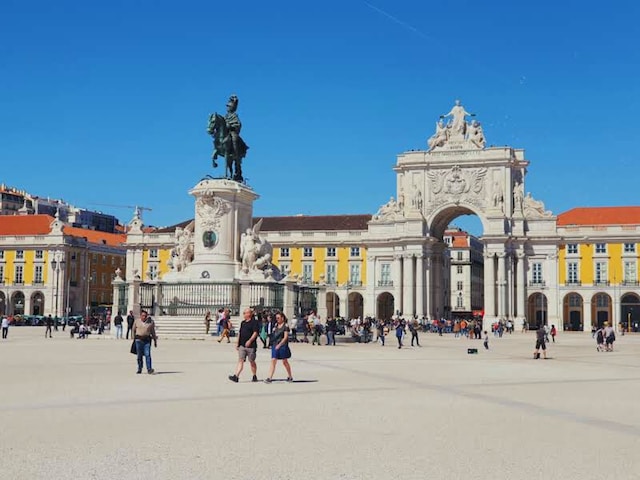Cultural Production Golden Visa Surges in Portugal
KEY TAKEAWAYS
- The removal of the real estate investment option from Portugal's Golden Visa program has led to increased interest in the cultural production alternative.
- Despite being part of the Golden Visa scheme for a while, the cultural production option gained prominence after the recent changes.
- In response to the housing crisis, Portugal's President approved the "More Housing" bill in October, which included the elimination of real estate investment choices within the Golden Visa program.
Removing the real estate investment option from Portugal’s Golden Visa program has paved the way for the cultural production option, which has begun attracting a larger number of internationals.
In spite of the fact that it has long been part of the Golden Visa scheme, the cultural production option has not been so famous until now.
Portugal’s Golden Visa, known as Residency by Investment Program, allows wealthy foreigners to acquire residency in this country, provided they contribute financially by choosing one of the options that this scheme offers and also meeting additional specific conditions.
However, in a bid to manage the housing crisis with which it has been dealing in recent years, in October last year, Portugal’s President, Marcelo Rebelo de Sousa, approved the “More Housing” bill, thus approving new changes to this program, among them the abolishment of real estate investment options.
Previously, the Residency by Investment Scheme allowed internationals to acquire real estate in Portugal using either a real estate investment or a real estate purchase. The program permitted the acquisition of a real estate property worth €500,000 or more through real estate investment. Additionally, they were also eligible to acquire residency by purchasing a real estate property equal to or above €350,000 through real estate purchase.
With the approval of the “More Housing” bill, the options mentioned above, along with the capital transfer option allowing internationals to transfer €1.5 million, are no longer eligible.
Nonetheless, other options such as fund subscription, scientific research, creation of ten jobs, share capital and job creation, along with investment or donation in the arts or reconstruction of national cultural heritage with a donation of at least €250,000 continue to remain effective.
The cultural production Golden Visa offers a more philanthropic approach, reducing the opportunity for a financial return but providing a more affordable route to residency in five years, as well as the opportunity to include family members on that application, according to the EIN Presswire report.
There are two main options through the cultural production Golden Visa: supporting artistic projects like theatre productions, art exhibitions, concerts, or literary events or making a donation to preserve cultural heritage such as historical landmarks, cultural archives or archaeological sites.
Any investment through this option must be approved by the Directorate-General for Arts (DG Artes) or the Instituto de Conservação e Restauro and contribute to the development of Portugal’s culture or heritage.
Partnership director at Portugal Pathways, Steve Philp, considered the Golden Visa a huge success in attracting inward investment into Portugal and, with these new regulated funds, continues to offer a great route into the country.
“Golden Visas continue to be a popular investment option with many and varied regulated investment funds on offer, as well as the Cultural Production Golden Visa.
Philp
A recent Bloomberg report revealed that neither the abolishment of some routes in the Golden Visa Program nor the end of the Non-habitual Residence (NHR) programme- which permitted internationals to benefit from reduced tax rates on income for a period of ten years- has affected the country’s housing market, particularly in its capital, Lisbon.
Since its introduction in October 2012, until July 2023, authorities in Portugal issued a total of 12,497 golden visas, with the main beneficiaries of this program being nationals from China (5,366), Brazil (1,221), the United States (729), Turkey (584) as well as South Africa (534).

